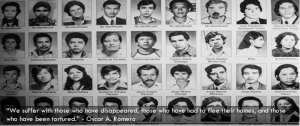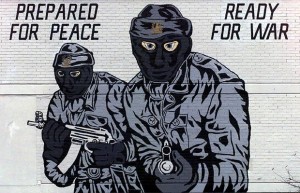My visit to South Africa on assignment for Global Affairs/UNESCO and Archives & Special Collections began in the first week of June in Johannesburg during an unusually cold winter (for South Africa). The purpose of the trip was to explore and convene on the archival landscape which had been mapped in 2000 through a partnership between the African National Congress (ANC) and the University of Connecticut. The initial archives project was funded by the Mellon Foundation to organize, describe and make accessible the ANC archives documenting its activities while in exile under Apartheid. These archives, located at the National Heritage and Cultural Studies Center (NAHECS) University of Fort Hare (UFH) in Alice, Eastern Cape, have been available in their reading room for public research since 2005. Between 2000 and 2005, UConn sent faculty, archivists, librarians and oral historians to UFH to hold training sessions and benefit from this skill sharing partnership. In conjunction, UFH sent archivists and librarians to receive training within the UConn libraries. Continue reading
Tag Archives: archivists
Terry Cook
Yesterday, the Archival profession lost a giant who agitated, inspired and implemented seminal ways of stewarding history and record-keeping. His passion for teaching and mentoring young archivists well into retirement was best vocalized in his 2010 ACA Keynote, “Standing on the Shoulders of Giants.” A strong advocate for human rights and archival implications of documentation and advocating for future generations is represented in the voice he so passionately infused in his many articles and speeches given around the world. Continue reading
Tutela Legal Archives
A report came out on October 4th, that the offices of a well respected Human Rights monitoring organization in San Salvador, Tutela Legal, were closed by its governing body, the Archdiocese of El Salvador. Contained in these offices are the archives of the organization dating back to the late 1970s when El Salvador’s US backed dictatorship was terrorizing the civilian population as a response to the cold war. Tutela Legal’s archives document disappearances and abuses which were recorded in hundreds of case files compiled from testimonies of witnesses and survivors.
Currently, the records remain in the hands of the Archdiocese, which has safely housed the organization since the state terror period as a continuation of Archbishop Oscar Romero’s vision of human rights and liberation. In the mid-1990s, University of Colorado at Boulder Archivist Bruce Montgomery funded a mass reproduction of Tutela Legal’s archives in order to store facsimiles outside of the country at his institution. During that period, an amnesty law was passed making any future legal convictions regarding war crimes or crimes against humanity during the conflict period illegal in El Salvador. Effectively, ‘it’s been dealt with, now go away.’ The eventuality of records destruction or alteration in human rights organization records outside the archival sphere makes collaborative projects like this between CU Boulder and Tutela Legal a reminder of the tenuousness of grassroots organization archives as well as the necessity for outreach from archivists to solidify networks of information solidarity.
Society of American Archivists and the Belfast Project
The Society of American Archivists held a virtual chat today over the internet on the impact of the Boston College tapes documenting “The Troubles” between Northern Ireland and the United Kingdom, known as the Belfast Project. Since the court ruling to allow the British government to subpoena 11 oral histories of paramilitary members, archives have had to re-examine the vulnerability of protected documentation in light of newly legislated states’ rights.
For a collection of related information and analysis on the tapes and the archival implications, follow the link.



